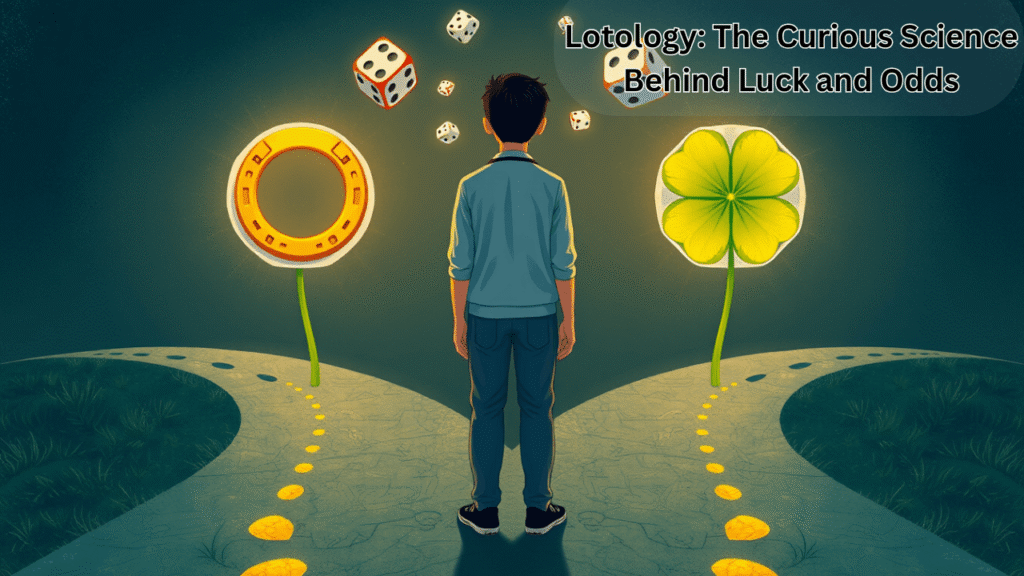What on Earth Is Lotology?
Let’s talk about Lotology—and no, it’s not just about winning the lottery or gambling your savings away. It’s the curious, layered study of randomness, luck, and how our brains try to make sense of it all. Think of it as the unofficial science of chance.
Now, Lotology isn’t a formal degree you can get from Harvard, but it brings together real academic disciplines—like probability theory, psychology, and sociology—to understand why people keep playing games they’re almost certain to lose. It explores the deep mental and cultural forces that keep us rolling dice, scratching tickets, and believing this time, luck is on our side.
The Backbone of Lotology: Probability and Human Belief
Before we get too deep, let’s rewind a bit. The heart of Lotology is built on probability theory—you know, the math behind predicting outcomes. Every lottery ticket, poker hand, or coin flip lives in the realm of probability. And here’s the kicker: most of us are really bad at understanding how probability works.
Lotology shows us that humans don’t like randomness. It makes us uncomfortable. So we invent patterns, create rituals, and build beliefs around events that are statistically indifferent to our hopes. Whether it’s carrying a lucky charm or thinking a slot machine is “due” to pay out, Lotology dives into how we convince ourselves that we can outwit randomness.
Lotology Meets the Human Mind: Psychology of Luck
Here’s where it gets fascinating. One major part of Lotology is how our minds process the idea of luck. For some, luck is fate. For others, it’s something they can earn or control.
Two major psychological concepts shape Lotology here:
- Gambler’s Fallacy: That belief that because the dice haven’t hit a 7 in a while, they must be about to. Spoiler: They’re not.
- Illusion of Control: When people think they can influence random outcomes. Like blowing on the dice or picking “lucky” numbers every week.
These aren’t just quirks. They’re deep mental shortcuts that impact how we take risks, manage money, and make life decisions.
How Lotology Plays Out in Real Life

1. Lotology in Gambling
Step into any casino and you’ll see Lotology in motion. Poker, roulette, blackjack—it’s all one big playground for randomness and human psychology.
Even though games like roulette are entirely chance-based, gamblers often swear by systems, rituals, and “hot streaks.” Lotology helps explain why, even in games where the odds are against them, people still play. It’s not just about winning—it’s about how our brains crave the possibility of winning.
Professional gamblers might use probability to guide their bets, but in the end, Lotology reminds us that even the best strategies can’t control random outcomes.
2. Lotology in Lotteries
Lotteries are a goldmine—figuratively and sometimes literally—for Lotology. Millions play despite astronomical odds. Why?
Because humans love the dream. That one-in-a-million chance of changing their lives forever. Lotology examines why people invest in low-probability hopes, often repeatedly, even when the logic says otherwise.
3. Lotology in Decision-Making
Here’s where things get personal. Lotology doesn’t stop at games—it spills over into how we make real-world decisions under uncertainty.
Whether it’s investing in stocks, choosing a job, or even picking a vacation spot, Lotology helps decode how people weigh risk, reward, and gut feelings.
Some are drawn to high-risk-high-reward options, believing in their luck. Others play it safe, doubting the randomness will work in their favor.
Lotology in Culture: More Than Just Numbers
Lotology isn’t just an individual thing—it’s cultural, too. Think about how some countries treat lotteries like a national pastime, while others barely tolerate them.
In many societies, luck has deep roots. Certain numbers, animals, or rituals are considered “lucky.” And these beliefs directly shape how people approach randomness and gambling.
Lotology studies these trends—how culture molds our ideas about luck, chance, and fairness. It’s about understanding not just the player, but the world that raised the player.
The Digital Leap: AI and the Future of Lotology
Here’s where things get really interesting.
With the rise of AI and machine learning, players and platforms now analyze past outcomes for patterns—whether in sports betting, digital lotteries, or casino games. Even though games like roulette are still random, people are using data to feel smarter about their chances.
Digital platforms are also changing how Lotology is applied. Blockchain-based lotteries, random number generators, and algorithm-driven odds are adding new layers to this already complex field.
Wrapping It Up: Why Lotology Matters
Lotology isn’t just a quirky term. It’s a mirror to how we handle the unpredictable parts of life.
Whether we’re playing poker, buying lottery tickets, or just making tough life choices, we’re interacting with randomness every day. Lotology helps us understand how we do that—and more importantly, why.
So next time you’re tempted to scratch a lottery ticket or trust your gut on a long shot, remember—you’re participating in the subtle, fascinating dance of Lotology. It’s not just about luck. It’s about being human in a random world.
Understand the unique blend of elements inside Kiolopobgofit and its impact on wellness and tech.



